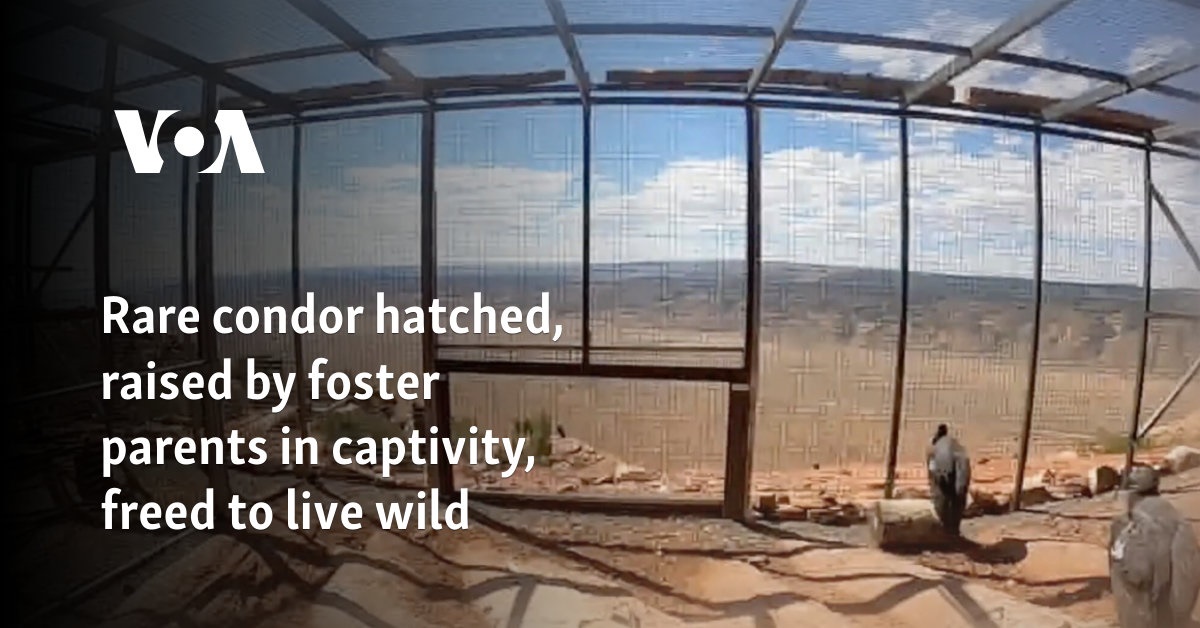By all accounts, Milagra the “miracle” California condor shouldn’t be alive today.
But now at nearly 17 months old, she is one of three of the giant endangered birds who stretched their wings in the wild as part of a release this weekend near the Grand Canyon.
Even after the door was opened Saturday, the birds didn’t immediately leave their pen. After 20 minutes, one condor left the pen, followed 20 minutes later by another condor.
Then, after sitting in the pen for an hour and 20 minutes, Milagra exited the enclosure and took flight. When a livestream of the wildlife release ended, a fourth condor remained in the pen, not ready to leave.
For Milagra, there is no more appropriate name for a young bird that has managed to survive against all odds. Her mother died from the worst outbreak of avian flu in U.S. history soon after she laid her egg, and her father nearly succumbed to the same fate while struggling to incubate the egg alone.
Milagra, which means miracle in Spanish, was rescued from her nest and hatched in captivity thanks to the care of her foster condor parents.
On brink of extinction
The emergency operation was part of a program established about 40 years ago to help bring the birds back from the brink of extinction when their numbers had plummeted to fewer than two dozen.
The Peregrine Fund and the Bureau of Land Management streamed the release of Milagra and the others online Saturday from Vermilion Cliffs National Monument, about 80 kilometers from the Grand Canyon’s North Rim.
Condors have been released there since 1996. But the annual practice was put on hold last year because of what is known as the bird flu. Highly Pathogenic Avian Influenza killed 21 condors in the Utah-Arizona flock.
“This year’s condor release will be especially impactful given the losses we experienced in 2023 from HPAI and lead poisoning,” said Tim Hauck, The Peregrine Fund’s California Condor program director.
Endangered species since 1967
Today, as many as 360 of the birds are estimated to be living in the wild, with some in the Baja of Mexico and most in California, where similar releases continue. More than 200 others live in captivity.
The largest land bird in North America with a wingspan of 2.9 meters, condors have been protected in the U.S. as an endangered species since 1967. Many conservationists consider it a miracle that any exist at all.
Robert Bate, manager of the Vermilion Cliffs monument, said the release was being shared online in real time “so that the scope and reach of this incredible and successful collaborative recovery effort can continue to inspire people worldwide.”
California condors mate for life with a lifespan of up to 60 years and can travel up to 322 kilometers a day, which they have been known to do as they move back and forth between the Grand Canyon and Zion national parks.
The Peregrine Fund started breeding condors in cooperation with federal wildlife managers in 1993. The first was released into the wild in 1995. It would be another eight years before the first chick was hatched out of captivity.
Milagra’s foster father was hatched in the wild in California in 1983. He was one of the first brought into the program as a nestling when fewer than two dozen were known to still exist worldwide.
Convinced it was the species’ only hope for survival, the U.S. Fish and Wildlife Service made an unprecedented, risky decision back then to capture the remaining 22 known to exist to launch the breeding program. Over time, it has grown with assistance from the Oregon Zoo, Los Angeles Zoo and San Diego Zoo Safari Park.







